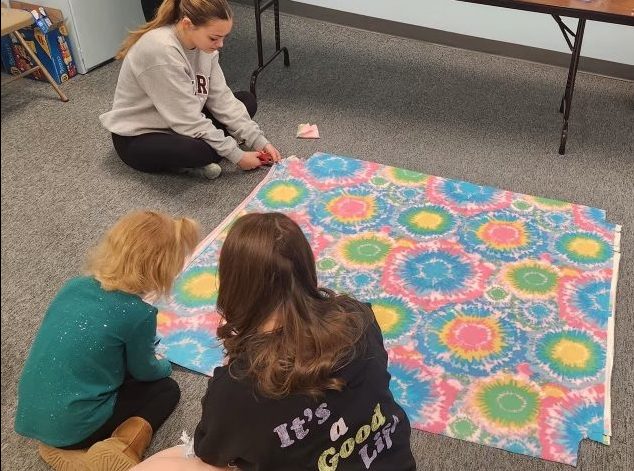
Teen stereotypes debunked
Stereotypes nowadays have clouded everyone’s minds with judgment. Even subconsciously, when someone meets a new person, their first thoughts are prejudice.
The age group that suffers from the most assumptions is teenagers!
The most common stereotypes they are categorized into are all teenagers are lazy, rebellious, procrastinators, addicted to technology, illiterate, and desperate for attention.
Research online proves these stereotypes are inaccurate and teenagers are blindly being labeled; people do not want to understand the backstory behind these labels and why they exist.
Read more to debunk these common misleading stereotypes!
These days, teenagers are seen as lazy, negligent, idle kids who do not care about school and either do drugs or play video games instead of focusing on their education.
In reality, it is much more complex than the “lazy” stereotype. Kids now are depressed and struggling with their mental health more than ever before, greatly contributing to their motivational issues.
This is something that older generations cannot relate to which leads them to judge teenagers who just need a little help.
The older generation is generalizing the majority of teenagers.
Some kids enroll in every club imaginable, play instruments, do sports, and stay on top of their education simultaneously.
Another problem that teenagers face is a hormone imbalance. Melatonin, the hormone that induces sleep, is released later in teenagers than it does in adults.
Research from Newsnetwork.mayoclinic.org shows the hormone releases around 10:30 or 11 p.m. in teenagers which is why it seems impossible for them to fall asleep before them.
This phenomenon called delayed sleep phase syndrome (DSPS) is common in adolescents, affecting 7-16 percent worldwide.
Since DSPS can prevent teens from getting the nine hours of required sleep, they get very tired throughout their normal days of learning, participating in after-school clubs, possibly working, etc.
When someone is drowsy, they are less motivated to do what is required of them, which is the reason for the “I don’t care” mentality most teens face. This mentality is similar to the “What’s the point” mindset since some teens do not understand the reasoning behind some things in their daily lives.
Many teenagers feel the need to get a job around the age of 15 years old. They work a lot of long hours for the money, but when faced with the inflating costs of the things they want to buy, all their hard work seems to be wasted. Their salaries seem low compared to the high cost of necessities and this is when, so early on in life, their struggles with money begin.
Kids go through a “rebellious phase” according to many if not all parents around the world. As defined by Child-focus.org, a rebellious phase happens when a teenager is faced with questions of adulthood, and in search of independence, they rebel against their authority figures; their parents.
Teenagers can not help their defiance since it is something that everyone needs to go through to find out who they are. Sometimes, kids do not even know that they are rebelling since it feels normal to them.
It is also important to remember that every child deals with growing up in their own way.
Kids who had older siblings could have seen some of their older sibling’s actions as irrational and understandable, but eventually, the cycle might continue with them as well.
Dr. Robert Epstein, an American psychologist and professor, published his paper “The Myth of the Teen Brain” in Scientific American Mind in 2007. The paper states teens in previous generations and time periods had a very easy transition from their teenage years into their adulthood.
He blames parents for their “infantilized and isolated” teenagers who see no other choice but to rebel to reach their goals of freedom. If teenagers are trusted with independence, they will mature and grow in a much healthier way than if they were treated like children.
Allison Fazio, 27′, shared that her relationship with her parents has flourished since becoming a teenager. She stated, “They treat me more like an adult and they trust me with more. It comes with a level of maturity. But I know when I don’t do what they say, they take away my privileges.”
Epstein, along with others, such as Dr. Daniel Siegel, a neuropsychiatrist and clinical professor of psychiatry, and Dr. Granville Stanley Hall, an American psychologist, and educator, believes that teenage rebellion is nothing more than a social construct of the modern age.
Nowadays, it seems teenagers are moving out of their childhood homes much later than they used to. This does not only suggest that they are lazy, but it also indicates that they are procrastinating adulthood and independence.
The simple answer to this prejudice is the inflation in housing and even college tuition.
On In2013dollars.com, the inflation rate in housing prices has been listed as 4.26 percent per year since 1967. The equivalent price of a house that cost 100,000 dollars in 1967, would cost more than a million dollars in 2024.
It is unfair that teenagers are expected to move out in these conditions when they most likely have no money saved up and are still unsure of what they even want to do in life. Even college campus prices are rising by the second.
Not only does tuition cost more than some houses do, but the pricing of a dorm room at a four-year college, has risen by 37 percent in the last 10 years as recorded on Usatoday.com.
Housing costs have been steadily increasing since the early 2000s and it’s only making moving harder for these adolescents.
The problem is not that teenagers want to live with their parents forever, or they are prolonging their childhoods, but it is that it is almost impossible to move out stress-free with all these high prices.
Imagine a digital world free of stereotypes and cliches. Where every post was original and meaningful. Unfortunately, this is not the case in this world.
According to the Cambridge Dictionary, a cliche is defined as “a phrase, remark, or opinion that has been said or expressed very often before and is therefore not original and not interesting.”
A stereotype is defined as “a set idea that people have about what someone or something is like.”
How many times has social media decided what is right or wrong about a person, group, or situation? How many times have people followed suit in these ideas, not questioning the ramifications this might have on society?
One of the most common cliches is that women are not good at Science, Technology, Engineering, and Mathematics (STEM) subjects. TikTok fueled this fire by coining the term “girl math.” According to CBS News, “Girl math” is a new personal finance trend recommending humorous ways to defend their spending habits. In the world of “Girl math,” cash is not real money, buying items on sale is a form of saving money, and buying cosmetic products is an investment into your future self.
While this new trend is supposed to be taken lightheartedly, some people could find it offensive, if taken too seriously.
Stroudsburg High School students get up as late as six in the morning. Then, they have a full seven-hour day ahead of them.
Most students have loads of homework to do and have many activities during the day. For some, the only time work can get done is late at night.
Most students do not get their eight hours of sleep due to working late. The students drink caffeine because of how much work they have.
Caffeine addiction can be lead back to the students having too much work and too many clubs, as they are just trying to be successful to easily get into college.
Some teens may lay in their bed for the majority of the day and constantly have a screen in their hands, however, there are many teens who volunteer.
Stroudsburg has clubs with volunteer options and the students take the opportunities.
NHS has sixty-six members. There have been over 10 events posted to volunteer for. Students fill the open positions to volunteer right away. It is hard for every student to volunteer all the time since there are so many students signing up to volunteer.
According to the Census, ages 16-17 had the highest volunteering rate in 2021 with 28 percent in the whole country.
Teens do more than just sit around discussing who is beefing with who. Young people have changed the reputation of their generations by being hands-on.










